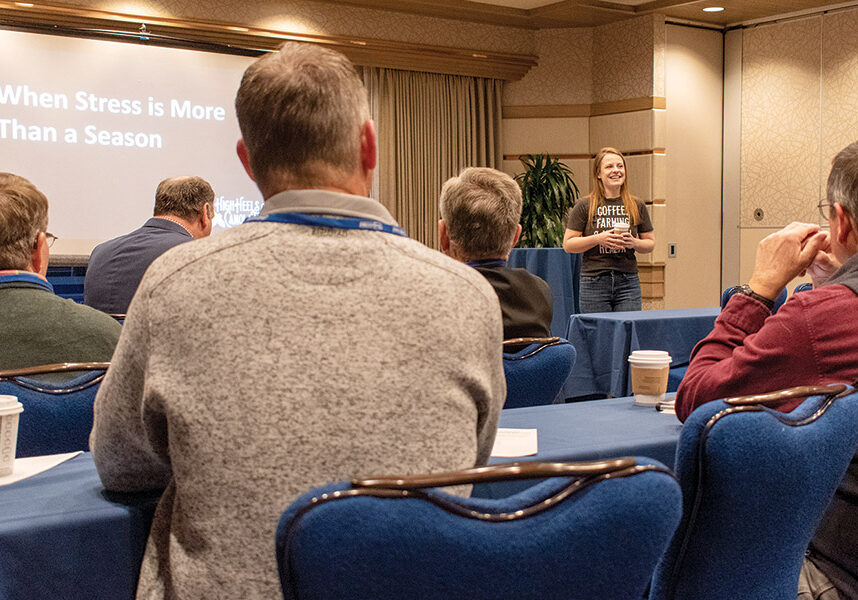Break-out session roundup Stress, falling numbers, herbicide resistance: Convention had it covered.
2023January 2023
By Lori Maricle
Communications Director, Washington Grain Commission

The break-out sessions at the 2022 Tri-State Grain Growers Convention had something for everyone. Here are summaries of three of them.
When Stress is More than a Season
Lesley Kelly wants to spread seeds of hope and love across North America. The Canadian farmer and founder of the organization, High Heels and Canola Fields, provided growers with ways to identify and address stressors that have the potential to impact mental health.
Kelly discussed ways to show family and neighbors, rather than just telling them, that they have a community and resources through the acronym “Weathering the S.T.O.R.M.” Her main takeaways are that any person’s stress is real and valid and may be different from someone else. No matter where a person is in their journey, honor it. Process conflict with empathy, curiosity, gentleness and open communication.
PNW Herbicide Resistance Initiative
The nature of weed resistance is very insidious, and weed management strongly affects the long-term environmental and economic sustainability of Pacific Northwest (PNW) farmers. Strong support and advocacy efforts from PNW grain growers contributed to securing $2 million annually to address herbicide resistance. Drs. Ian Burke, Washington State University (WSU); Steve Young, U.S. Department of Agriculture’s Agricultural Research Service (USDA-ARS); and Judit Barroso, Oregon State University, presented on their coordinated efforts to improve weed management systems for PNW growers. Their vision for managing herbicide resistance is centered on collaborative, multistakeholder, region-wide action integrating multiple situation- and location-specific management practices. Their main objective is to develop a decision support system for growers to adopt integrated weed management into their ongoing farm management.
Low Falling Numbers in Wheat: An Update
Drs. Camille Steber, USDA-ARS; Amber Hauvermale, WSU Crop and Soil Sciences; and Alison Thompson, USDA-ARS, provided an update on the progress of falling numbers research. Their collaborative projects are working on wheat breeding for genetic resistance to low falling numbers and developing a rapid alpha-amylase enzyme immunoassay as an alternative to the falling numbers test. The rapid test, based on the same methodology used for vomitoxin (DON), will soon begin field beta testing. The first iteration of the test should be able to give growers a quick “low” or “high” indication, so that they will know if there is the presence of a low falling numbers issue so the grain can be separated and tested further to get an exact number.
Thompson provided discussion on potential sources of improvement of the rapid test in the future, drawing from her experience with similar quality testing processes that are used in the cotton industry.












